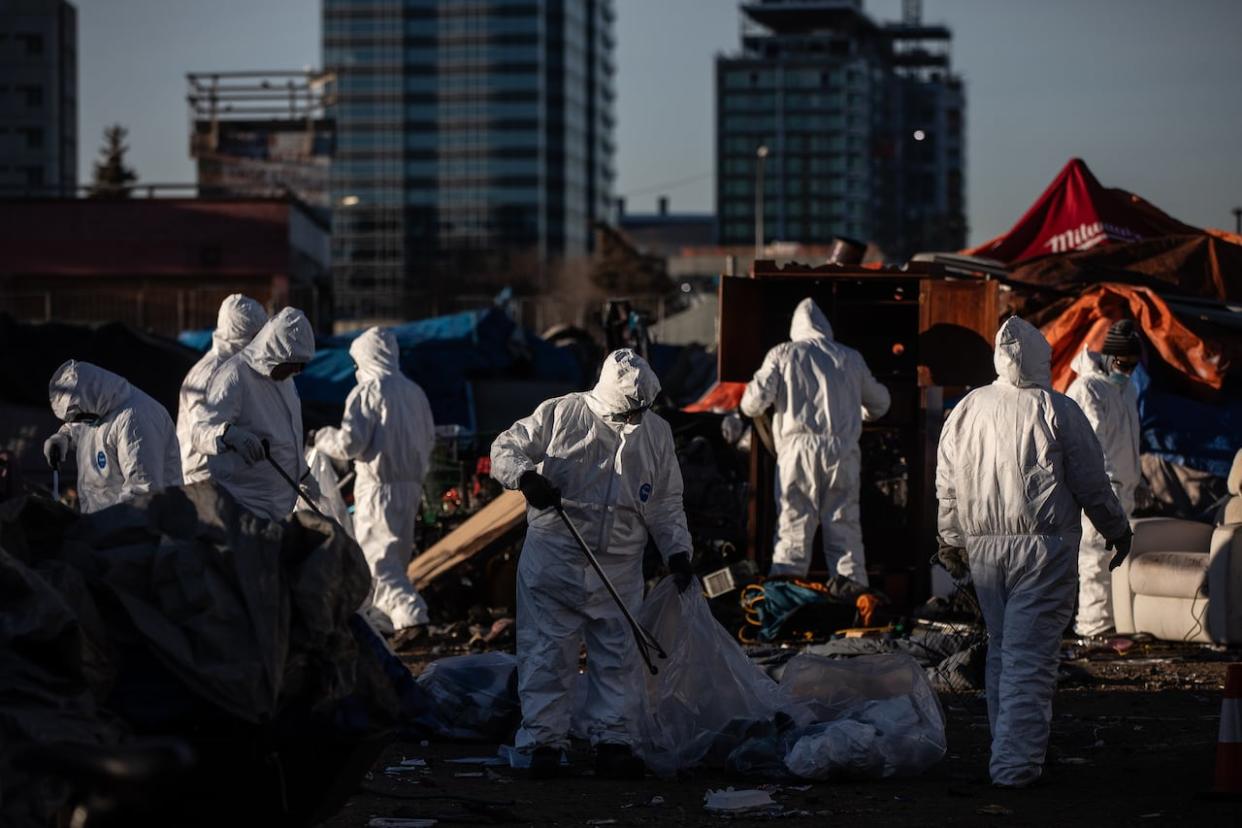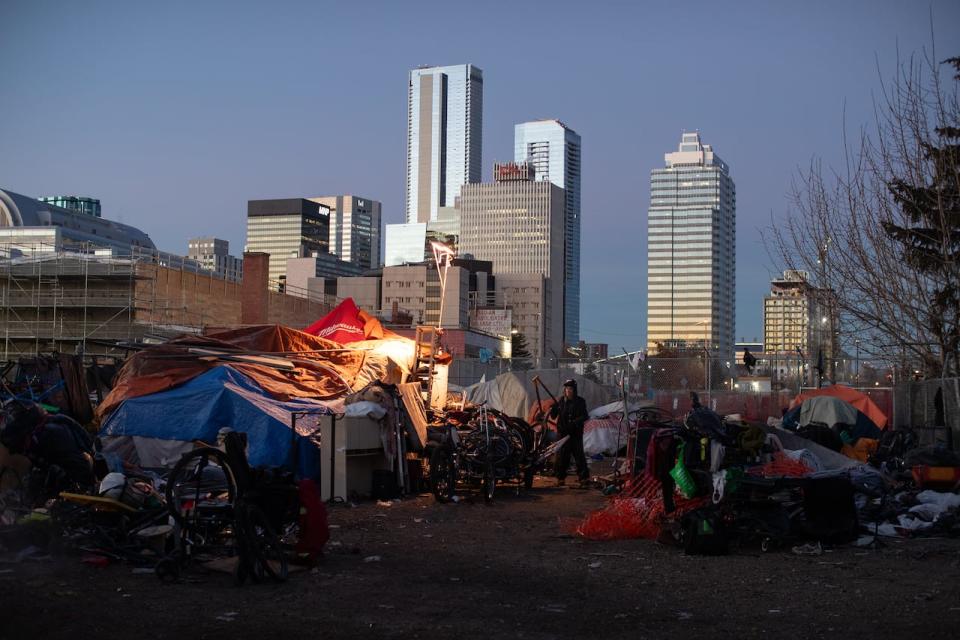Advocacy group to pay City of Edmonton more than $11K in costs after failed encampment lawsuit

A human rights organization that unsuccessfully sued the City of Edmonton over its removal of encampments has been ordered to pay $11,500 of the city's legal bill.
The ruling on court costs from the Court of King's Bench is the latest development in a legal challenge that put the city's approach to homeless camps under scrutiny.
City administration was seeking $25,000 from the Coalition for Justice and Human Rights to recover some of the $42,626 in legal expenses it incurred fighting the lawsuit.
The Edmonton-based group brought the case last August to challenge the constitutionality of the city's encampment removals policy.
The suit was thrown out in January when the court determined the coalition did not have legal standing to represent people in Edmonton experiencing homelessness.
A potential test case
After the case was scrapped, the city made its claim for costs.
In a written ruling on costs Thursday, King's Bench Justice Jonathan Martin said the city should be awarded partial costs because the case brought matters of public interest to the court.
Had the litigation proceeded, it would have been a test case for the legality of the city's encampment strategy, Martin wrote.
"No decision has yet to be made as to whether the city's policies on encampments are in fact Charter compliant," Martin said.
"Had the coalition been granted public interest standing, this matter would have been precedential in addressing the legality of the City of Edmonton's policy on dismantling the encampments, including the impact of the policy on the Charter rights of unhoused persons."

A man prepares to move his belongings as police and cleanup crews prepare to tear down homeless encampments in Edmonton on Friday, December 29, 2023. (Jason Franson/The Canadian Press)
Martin wrote that accessible housing is a national issue and the coalition managed to achieve a degree of success in the case, including interim injunctions that temporarily halted the removal of tents from city land.
"There is insufficient evidence for this court to find that the filing of the action by the coalition caused the City of Edmonton to reconsider their response to encampments on public land," Martin wrote.
"However, I find that the proceedings did bring with them significant regional and national attention regarding the plight of unhoused Edmontonians and unhoused persons throughout Canada."
Martin said issues of access to justice were also at play in his ruling. The court recognizes the difficulties unhoused persons face in bringing litigation forward, he said.
Avnish Nanda, one of the lawyers representing the coalition, said the ruling recognizes that the case had value.
"It recognizes that the coalition really advanced this issue in the city, the issue of how the City of Edmonton deals with encampments and clearances," Nanda said in an interview Friday.
"Even though we were unsuccessful in the main injunction, we had tremendous success around raising awareness to this issue, changing city policy and securing that emergency interim injunction."
The city had argued that its request to cover partial costs is fair because it balances the plaintiff's not-for-profit status and the city's substantial use of resources during the legal dispute.
604 encampment evictions
In a statement Friday, Edmonton officials said the city respects the decision of the court. The city also provided numbers that show that encampment removals continue at an accelerated rate.
Since Jan. 17, when the lawsuit was scrapped, 604 encampment sites with at least one structure have been dismantled across the city. The city said the number includes sites that have been cleared more than once.
In its lawsuit, the coalition described the city's encampment eviction policy as a violation of the human rights of people who live in the camps. It sought restrictions on the city and police response to camps in certain situations, such as when temperatures get too low.
The lawsuit — and several inner-city camp evictions that followed during the winter season — prompted widespread outcry about the city's approach to encampments.
Months after the lawsuit was filed, the city made plans to tear down eight inner-city encampments it had deemed a danger to public safety.
The planned sweeps by Edmonton police prompted a series of interim injunctions, which set conditions for the removals. In January, tents at the eighth and final encampment were torn down as extreme cold blanketed the city.
Nanda said the question of who will pay for legal costs incurred during the fight for interim injunctions remains unresolved.
"We are certainly exploring the avenue of getting costs of that matter be resolved," he said.
"To be frank, I don't know why the city is engaging in this," he said. "I think it's a bit vindictive and it's a waste of everybody's time, particularly taxpayers."


